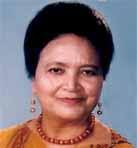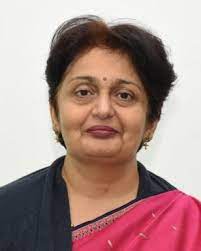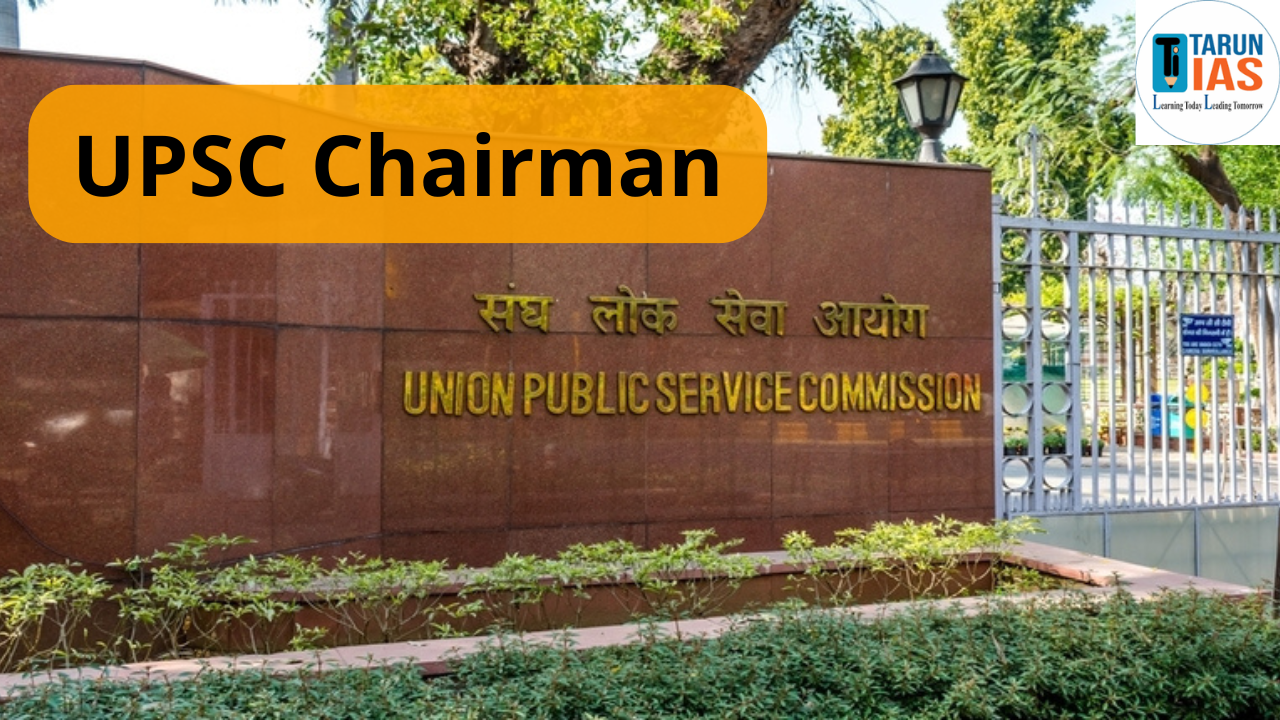The UPSC Chairman is the head of the Union Public Service Commission, which is a very important constitutional body in India. This post is filled according to Article 316 of the Indian Constitution. The Chairman is appointed by the President of India, which shows how important this role is in our system. The UPSC conducts exams like IAS, IPS, and others, so the Chairman’s job is to make sure everything runs smoothly and fairly.
UPSC Chairman Appointment Process
There is no exam to become a UPSC Chairman. The President of India appoints the Chairman. Usually, a senior civil servant (like an IAS officer) or a UPSC member is selected based on their experience and clean record.The President of India officially appoints the UPSC Chairman.
- A person with at least 10 years of experience in:
- Central services (like IAS, IPS, IFS, etc.)
- State services (like State Civil Services)
- Or someone with a strong administrative or judicial background.
There is no fixed competitive exam or interview to select the Chairman.
The central government recommends names, and the President approves the final choice.
UPSC Chairman Tenure
6 years or Until the person turns 65 years old, whichever is earlier. A person who becomes UPSC Chairman cannot take any other government job after retirement, except for certain posts like Governor.The Chairman can resign anytime by writing to the President.The Chairman can be removed by the President only under certain conditions, such as:
-
Proved misbehavior
-
Mental or physical incapacity
-
Based on the report of the Supreme Court.
UPSC Chairman Salary
The salary of the UPSC Chairman is quite high because it is a very responsible and respected post. Currently, the Chairman gets ₹2.5 lakh every month, which means the yearly salary is around ₹30 lakhs. This increase happened after the 7th Pay Commission was applied, which gave a major hike. Earlier, the salary was just ₹90,000 per month, so this is almost three times more.
- Tenure The UPSC Chairman stays in office for 6 years or until they turn 65 years old, whichever comes first. This is clearly mentioned in the Constitution.
- Qualifications are needed to become UPSC Chairman. Surprisingly, the Constitution doesn’t mention any specific degree or qualification for this post. But it says that at least 50% of the members must have worked in government service for at least 10 years. This means they must have a lot of experience in administration or public service.
UPSC Chairman Powers and Functions
According to Article 320 of the Indian Constitution, the UPSC is responsible for many important tasks related to civil services. The UPSC and its Chairman play a very important role in selecting the right people for government jobs.
- UPSC is to conduct exams for different central government posts, like IAS, IPS, and IFS. These exams are held to choose the most capable and honest candidates. Apart from exams, interviews are also conducted for direct recruitment to higher posts.
- UPSC also helps in promotions of officers and selects people through deputation or absorption from other departments when needed. Another important duty is to prepare or update the rules for how people are recruited to different posts in government services.
- The UPSC also deals with disciplinary issues related to civil servants. If there is any doubt or confusion about civil service matters, the President of India can ask UPSC for advice, and the commission gives expert opinions.
UPSC Chairman Duties and Responsibilities
The UPSC Chairman has a very important role in how civil servants are selected and managed in India. As the head of the Union Public Service Commission. These are Following Duties and responsibilities of UPSC Chairman:
- As the head of the Union Public Service Commission, the Chairman makes sure that exams for posts like IAS, IPS, IFS, and others are held in a fair and proper way.
- These exams are the first step to enter civil services, and it is the Chairman’s responsibility to oversee the entire process.
- Apart from written exams, the Chairman also helps in direct recruitment through interviews. This ensures that only the best candidates are chosen for top government jobs.
- The Chairman is also involved in promoting officers, sending them on deputation, or absorbing them into other departments.
- To advise the Government of India, especially on issues that are sent by the President. This helps in better policy-making and smooth functioning of the system.
- The Chairman also takes care of disciplinary actions against officers who break rules.
- The Chairman leads the UPSC team, sets goals, and ensures that decisions are taken in the right direction for good governance.
First UPSC Chairman (Post Independence)
After India became independent, H.K. Kripalani was appointed as the first Indian Chairman of the UPSC. He was also the first Chairman of the Commission in free India. Earlier, during British rule, the body was known as the Federal Public Service Commission, which had been set up in 1926. But after independence, there was a big change.
On 26th January 1950, when the Constitution of India came into effect, this body was officially renamed as the Union Public Service Commission and was given full constitutional status. This meant that UPSC became a permanent and independent body responsible for selecting civil servants for the country.
UPSC Chairman First Woman
Rose Millian Bathew was the first woman to become the Chairman of the UPSC. She served in this prestigious position from 23rd September 1992 to 23rd August 1996. Her appointment was a historic moment .Her leadership also encouraged more women to dream of joining civil services and inspired confidence in gender equality within public institutions.

UPSC Chairman 2024
Preeti Sudan, a former IAS officer, became the UPSC Chairperson on 1st August 2024, taking over from Dr. Manoj Soni. Before this, she served as Union Health Secretary and was later appointed as a UPSC member. She has worked in key ministries like Defence and Women and Child Development, bringing rich experience to the post.

UPSC Chairman 2025
In 2025, the post of UPSC Chairman is held by Ajay Kumar. He took charge on 15th May 2025. He is a retired IAS officer from the 1985 batch and had earlier served as Defence Secretary of India. He studied at IIT Kanpur and later completed his education at the University of Minnesota, USA.

List of UPSC Chairman (1926-2025)
The complete list of UPSC Chairman:
| S. No | UPSC Chairman | Tenure
From |
To |
| 1 | Sir Ross Barker | October 1926 | August 1932 |
| 2 | Sir David Petrie | August 1932 | 1936 |
| 3 | Sir Eyre Gorden | 1937 | 1942 |
| 4 | Sir F. W. Robertson | 1942 | 1947 |
| 5 | H. K. Kripalani | 1 April 1947 | 13 January 1949 |
| 6 | R. N. Banerjee | 14 January 1949 | 9 May 1955 |
| 7 | N. Govindarajan | 10 May 1955 | 9 December 1955 |
| 8 | V. S. Hejmadi | 10 December 1955 | 9 December 1961 |
| 9 | B. N. Jha | 11 December 1961 | 22 February 1967 |
| 10 | Sh. K.R. Damle | 18 April 1967 | 2 March 1971 |
| 11 | Ranadhir Chandra Sarma Sarkar | 11 May 1971 | 1 February 1973 |
| 12 | Akhlaqur Rahman Kidwai | 5 February 1973 | 4 February 1979 |
| 13 | M. L. Shahare | 16 February 1979 | 16 February 1985 |
| 14 | H. K. L. Capoor | 18 February 1985 | 5 March 1990 |
| 15 | J. P. Gupta | 5 March 1990 | 2 June 1992 |
| 16 | Rose Millian Bathew (Kharbuli) | 23 September 1992 | 23 August 1996 |
| 17 | S. J. S. Chhatwal | 23 August 1996 | 30 September 1996 |
| 18 | J. M. Qureshi | 30 September 1996 | 11 December 1998 |
| 19 | Surendra Nath | 11 December 1998 | 25 June 2002 |
| 20 | Purna Chandra Hota | 25 June 2002 | 25 June 2003 |
| 21 | Mata Prasad | September 2003 | January 2005 |
| 22 | S. R. Hashim | 4 January 2005 | 1 April 2006 |
| 23 | Gurbachan Jagat | 1 April 2006 | 30 June 2007 |
| 24 | Subir Dutta | 30 June 2007 | 16 August 2008 |
| 25 | D. P. Agrawal | 16 August 2008 | August 2014 |
| 26 | Rajni Razdan | 16 August 2014 | 21 November 2014 |
| 27 | Deepak Gupta | 22 November 2014 | 20 September 2016 |
| 28 | Alka Sirohi | 21 September 2016 | 3 January 2017 |
| 29 | David R. Syiemlieh | 4 January 2017 | 21 January 2018 |
| 30 | Vinay Mittal | 22 January 2018 | 19 June 2018 |
| 31 | Arvind Saxena (acting) | 20 June 2018 | 28 November 2018 |
| 32 | Arvind Saxena | 20 June 2018 | 6 August 2020 |
| 33 | Pradeep Kumar Joshi | 7 August 2020 | 4 April 2022 |
| 34 | Dr. Manoj Soni(acting) | 5 April 2022 | 16 May 2023 |
| 35 | Dr. Manoj Soni | 16 May 2023 | July 2024 |
| 36 | Preeti Sudan | 01 August 2024 | April 2025 |
| 37 | Ajay Kumar | 15 May 2025 | ——— |
Conclusion
UPSC is the foundation of Indian bureaucracy. It ensures that only the best and most deserving candidates become officers like IAS, IPS, and IFS. The UPSC Chairman plays a big role in ensuring that this process remains fair, efficient, and free from any bias.
Understanding how UPSC works, who leads it, and what role it plays will give you confidence and clarity.















